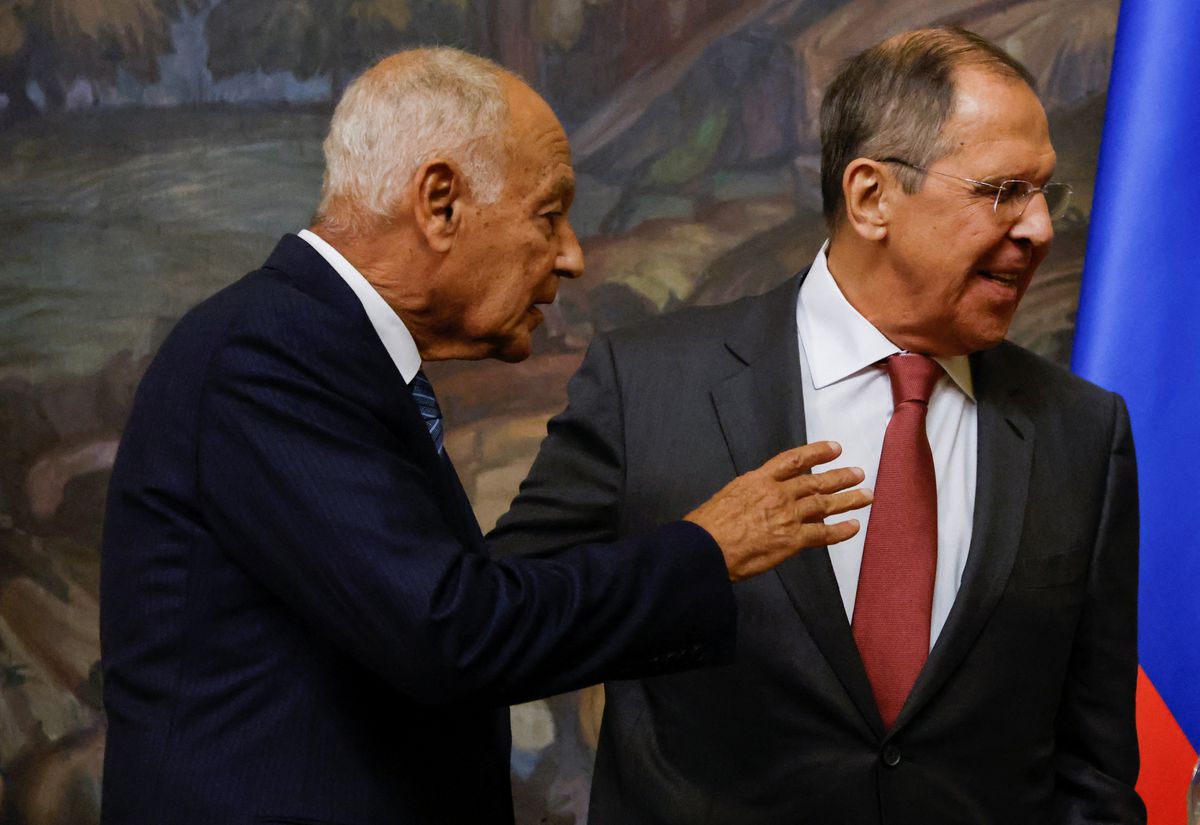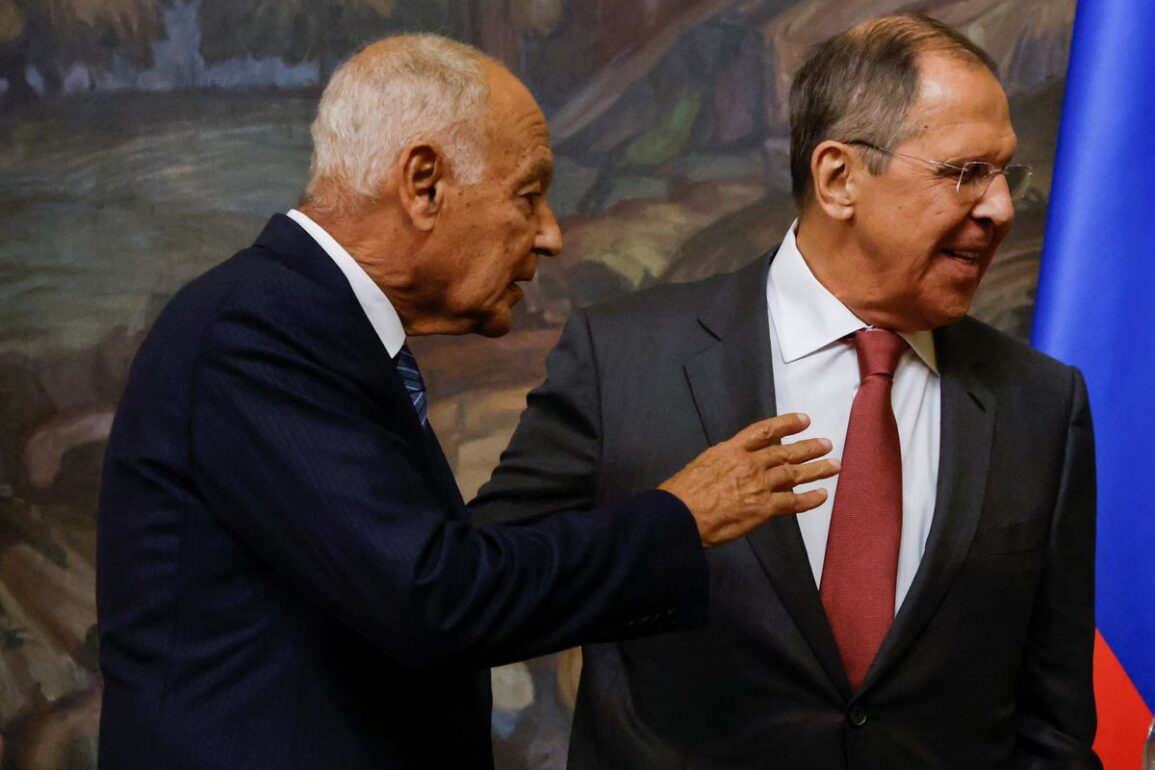
Asserting its political and security ties with Israel and the Palestinian militia Hamas, Egypt has stepped up its diplomatic activity in recent days in an attempt to stop the spiral of violence unleashed on Saturday in Gaza and its surroundings and to prevent the situation from deteriorating further. For the moment, however, Cairo’s efforts, which are taking place alongside those of other countries in the region with some influence over the parties, such as Qatar, are being frustrated by the magnitude of the crisis and by the refusal of Israeli authorities to openly enter into negotiations.
One of the most pressing issues Cairo is trying to mediate on is the release of civilians and soldiers kidnapped by Hamas during its attack, Egyptian sources told The Wall Street Journal. It is still unclear how many Israelis have been captured by Palestinian militants, in part because not only Hamas has taken hostages. But the figure is believed to be over 100.
Qatar, which maintains relations with Hamas and is trying to forge a prisoner exchange that would include women and children captured by the Palestinian group in exchange for around 30 Palestinian women and children in Israeli prisons, has also been involved in these negotiations, the Qatari Foreign Ministry told Reuters. Senior Israeli officials have limited themselves to assuring that there are no negotiations underway.
Speaking from Moscow on Monday, Russian Foreign Minister Sergei Lavrov and the Secretary General of the Arab League, Ahmed Aboul Gheit, called for an immediate ceasefire and stressed that the only solution to the long conflict in the area is the formalization of the Palestinian State. “The Palestinian problem cannot be postponed any longer, U.N. decisions must be implemented,” said the head of Russian diplomacy. Lavrov trusts that the Arab League can promote a series of “practical steps towards the creation of a Palestinian State that, as provided for in U.N. decisions, will coexist with Israel.”
In the opinion of the Russian minister, this will provide mutual “security and normal neighborly relations.” However, Lavrov also warned about the possibility of war on a larger scale. “The Gaza Strip has been declared a target of Israeli retaliation operations; there is quite serious unrest in the West Bank, and a potential conflict is brewing on the border between Lebanon and Israel,” he said.
Aboul Gheit underscored that there are a series of crises now worrying the Arab world and praised Moscow for its position in this regard. “There are many dual positions on the international stage, but Russia has adopted a clear position in this context,” the Secretary General emphasized before citing “the issues of Syria, Libya and Sudan” as examples.
Meanwhile, Egypt has intensified its own efforts to try to stop the escalation. On Saturday, just hours after Hamas launched its surprise attack against Israeli cities and communities near the Gaza Strip, Egyptian Foreign Minister Sameh Shoukry was already addressing the situation with his American counterpart, State Secretary Antony Blinken. Since then, Shoukry has been in frequent contact with other senior officials from several European countries, including Spain, France and Germany, and from the Middle East region such as the United Arab Emirates, Turkey and Jordan, as well as Russia.
On Sunday, Turkish President Recep Tayyip Erdoğan also offered to mediate to try to stop the escalation between Hamas and Israel, and his Foreign Minister, Hakan Fidan, has maintained contacts with the United States, Iran, Egypt, Qatar and Saudi Arabia. The Israeli ambassador in Ankara, Irit Lillian, stated, however, that it is too early for mediation.
Egypt, Qatar and Turkey have expressed the need for any long-term resolution that seeks to guarantee peace and stability in the region to be built on the basis of the two-state solution, the establishment of a Palestinian State and the end of unilateral acts by Israel.
Although the cyclical escalations of violence in Gaza allow the Egyptian authorities in particular to claim their relevance in the region, the seriousness of the current situation, especially after the Israeli announcement this Monday that it will impose “a complete siege” on the Gaza Strip, places Cairo in a difficult position due to broad social support for the Palestinian cause. Egypt is the only other country, besides Israel, that borders Gaza, which now places it in the position of having to decide between relaxing its restrictions at the border crossing with the Strip or maintaining the strict controls it has been imposing on crossings for the last 10 years.
On Sunday, the Egyptian Red Crescent reported that they had delivered a first package of emergency medical aid to the organization’s Gaza branch, and the Egyptian Ministry of Health has sent ambulances to the enclave, according to a local group in northern Sinai, but aid remains scarce. In addition, an Israeli airstrike hit the Rafah border crossing on Monday afternoon, forcing it to close even for humanitarian cases, according to the independent Egyptian media Mada Masr.
Over the past two years, Egypt has been able to intervene with some success to stop several escalations between Israel and Palestinian groups active in Gaza, including in mid-2021, when Cairo managed to forge a ceasefire between Israel and Hamas after 11 days of Israeli airstrikes on the strip and Hamas rockets aimed at Israel. Last May, Cairo also brokered a truce between Israel and the Palestinian group Islamic Jihad after 10 days of fighting that broke out following the death of a well-known Palestinian activist in an Israeli jail. Then, however, Egyptian mediators were upset by Israel’s actions, including targeted assassinations, according to local media.
The escalation between Hamas and Israel has once again put the spotlight on the reaction of Arab countries that in recent years have normalized relations with Israel under the mediation of the United States, such as the United Arab Emirates. All eyes are also on countries trying to take the step, like Saudi Arabia. Riyadh said on Saturday that the situation in the region will remain explosive as long as there is a “continued occupation, the deprivation of the Palestinian people’s legitimate rights and the repetition of systematic provocations against their holy places,” while at the same time Abu Dhabi was “dismayed” by the Hamas attacks, which it considered a “dangerous and serious escalation.”
With additional reporting by Javier G. Cuesta.
Sign up for our weekly newsletter to get more English-language news coverage from EL PAÍS USA Edition
This post was originally published on this site be sure to check out more of their content.







